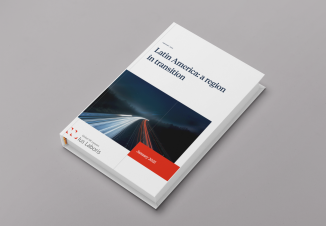
View text from contributing countries
Belgium, Chile, Colombia, Europe, Germany, Hungary, Italy, New Zealand, Ukraine
Belgium: New immigration rules in Brussels
New immigration rules apply in Brussels for foreign employees who are not European Economic Area or Swiss nationals. Unlike the Flemish Region (see previous Update) and the Walloon Region, the Brussels Region has not introduced a new business immigration model but has adapted the existing regulatory framework. The main points are:
The new rules apply retroactively from 1 June 2019 but authorisations obtained or applied for before will remain valid and will be dealt with according to the old rules. The rules for the new ‘European’ categories are mostly not yet in force and will enter into force later (date not yet known).
Sophie Maes, Claeys & Engels
Back to list of contributing countries
Belgium: New immigration rules in Wallonia
New immigration rules apply in Wallonia for foreign employees who are not European Economic Area or Swiss nationals. Like the Flemish Region (see previous Update), the Walloon Region has radically reformed the rules on employing foreign employees. The main points are:
The new rules apply retroactively from 1 June 2019 but authorisations obtained before will remain valid. Applications submitted before 1 June 2019 will be dealt with according to the old rules, unless they are less favourable. The rules for the new ‘European’ categories are not yet in force and will enter into force later (date not yet known).
Sophie Maes, Claeys & Engels
Back to list of contributing countries
Belgium: Pragmatic solutions in Flanders to avoid an employment gap in the framework of the single procedure
The lengthy processing times for Single Permit applications for employees who are not European Economic Area or Swiss nationals are causing a great deal of inconvenience. As a result, in the event of a renewal, the end date of the expiring work permit does not necessarily match the start date of the yet-to-be-obtained Single Permit. The Flemish Service for Economic Migration has offered a solution to remedy this. From 17 June 2019, the Service automatically issues, under certain conditions, a temporary work authorisation and work permit based on which the foreign employee can continue to work pending the final decision regarding the Single Permit for up to 90 days, provided that the employee still has a valid residence permit for this period.
Sophie Maes, Claeys & Engels
Back to list of contributing countries
Chile: Consular tourist visa for Venezuelan nationals
From 20 June 2019, Venezuelan nationals who want to travel to Chile for tourist purposes will be required to have a consular tourist visa.
The visa should be requested from the appropriate Chilean consulate abroad, prior to arrival in Chile.
The visa allows a maximum stay of 90 days.
Marcela Salazar Flores, Munita & Olavarría
Back to list of contributing countries
Colombia: Complementary measures to the recognition of refugee status for Venezuelans in Colombia
By means of Resolution 3548 of 2019, the Ministry of Foreign Affairs has created the Supplementary Special Permanence Permit (PECP) for Venezuelan nationals who requested recognition of refugee status in Colombia in the period between 19 August 2015 and 31 December 2018, and meet certain requirements.
The PECP will be granted for a period of 90 calendar days, extendable for equal periods, up to a maximum term of two years.
The holder of a PECP will be authorised to exercise any legal activity or occupation in Colombia.
Catalina Santos and Diana Monsalve, Brigard Urrutia
Back to list of contributing countries
Europe: European Labour Authority
On 11 July 2019, Regulation (EU) 2019/1149 of 20 June 2019 establishing a European Labour Authority was published in the Official Journal of the European Union. The European Labour Authority is expected to be established by 31 July 2019. The authority will support individuals, employers and national authorities to contribute to ensuring fair labour mobility across the EU by:
Sophie Maes, Claeys & Engels
Back to list of contributing countries
Germany: New ministerial guidance on A1 certificates for business trips between EU/EEA countries and Switzerland
The German Ministry of Employment and Social Affairs has issued guidance stating that, it its view, there is no European law duty to carry an A1 certificate on short-term business trips between EU/EEA countries and Switzerland.
However, according to the Ministry, member states can exercise their discretion to put an A1 certificate requirement in place through national law (currently France and, in principle, Austria have done so). Carrying an A1 certificate is recommended in these states. For business trips to Germany, there is no duty to carry an A1 certificate under German national law.
This guidance is not binding for other EU or EEA member states and Switzerland, therefore other states can interpret EU law to mean that carrying an A1 certificate is mandatory. Not carrying an A1 certificate on business travel therefore still poses risks.
Julia Uznanski, KLIEMT.HR Lawyers
Back to list of contributing countries
Hungary: Residence permit requirements eased for third-country relatives of Hungarian citizens
The requirements for the Hungarian national permanent residence permit have been changed effective from 10 July 2019 (amendment to s 35(1) Act II of 2007 on the entry and stay of third country nationals).
Following the amendment, third-country national relatives of Hungarian citizens have the same advantages as relatives of third-country nationals with immigrant, permanent resident or refugee status in Hungary.
This means the following categories of individual can get the national residence permit and the normal three-year waiting period will not apply;
Previously, these advantages only applied to dependent parents and spouses of third-country nationals with immigrant, permanent resident or refugee status in Hungary.
Henrietta Hanyu, CLV Partners Law Firm
Back to list of contributing countries
Italy: New procedure for requesting an A1 form
The A1 form is granted by the Italian Social Security Institution (‘INPS’) to certify the legislation that applies to workers who carry out activities in one or more European States. INPS has now introduced a new procedure for applying for A1 forms with its Instruction 86/2019. In particular, from 1 September 2019, A1 form requests should only be filed online.
Valeria Morosini, Toffoletto De Luca Tamajo e Soci
Back to list of contributing countries
New Zealand: Electronic Travel Authority requirements in force from 1 October 2019
On 1 October 2019, Electronic Travel Authorities (ETAs) will become a mandatory requirement for certain foreign travellers to New Zealand who are not generally required to hold a temporary or resident visa to enter New Zealand.
Travellers to whom a ‘visa waiver’ applies under New Zealand’s immigration instructions and transit passengers to whom a ‘transit visa waiver’ applies will require an ETA in order to travel to New Zealand.
The ETA application process is online. ETAs last up to two years from the date of issue (or five years in the case of crew ETAs).
Various exemptions apply (including for citizens of Australia).
Simon Lapthorne and Hannah King, Kiely Thompson Caisley
Back to list of contributing countries
Ukraine: Long-term D visa to be issued
On 26 June 2019, new rules for the long-term D visa became effective. They allow foreign nationals to apply for a D visa in Ukraine without leaving the country.
Before this, the foreign nationals seeking employment in Ukraine could only apply for a D visa at Ukrainian consulates or embassies abroad. In most cases, they had to leave the country to get a D visa after their Ukrainian employer obtained a work permit to employ them.
From 26 June 2019, nationals of countries with a visa-free regime of entry to Ukraine (EU countries, US, Japan, etc.) can apply for a D visa at the Ministry of Foreign Affairs in Kyiv, without leaving the country.
Oleksandr Melnyk, Vasil Kisil & Partners


